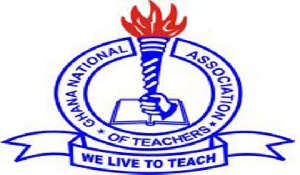Mr Charles Atakibire Ateem, the Bolgatanga Municipal Chairman of the Ghana National Association of Teachers (GNAT) has said government’s initiative to make housing affordable to Ghanaians is good and a relief to teachers’ in the rural areas.
He said it was disheartening to find about two or three teachers living in a single room in some communities in the region, “you can imagine the number of teachers posted to the north every year, they come and there is no accommodation for them, it is a real problem, and so the housing policy is dear to GNAT.”
Mr Ateem who said this on Friday, in an interview with the Ghana News Agency in Bolgatanga, recalled that at GNAT’s 52nd Quadrennial Conference held in Cape Coast early this year, an appeal was made to government to pass the housing bill which would be more affordable because housing is a right and not a privilege.
“GNAT is therefore happy that government has begun to make housing affordable as the President indicated in the State of the Nation Address to Parliament,” and added that it was refreshing news to hear the President say that the International Monetary Fund (IMF) supported Extended Credit Facility Programme would end this year.
This, he hoped would lift the ban placed on new recruitments into the public sector and facilitate postings of newly trained teachers, and further commended government for remitting GH¢3.1 billion of Tier 2 pension funds into the custodial accounts of the pension schemes of labour unions, “we are still calling on government to settle the remaining debt,” he said.
On government’s flagship programme, the Free Senior High School, Mr Ateem said it was a good initiative even though there were challenges with accommodation and furniture for students, and expressed worry that only textbooks on Core without Elective subjects were supplied to students which posed financial burdens on parents because they had to buy about four Elective textbooks.
He suggested that if government could engage the various categories of Elective subject teachers to write books in their areas and supply to the schools, “for instance, we have Christian Religious Studies (CRS) teachers who can come together and write books on CRS for government to supply to students offering CRS, and same should be applied to the other elective subjects.”
He said it would be cost effective as was done with the Core subjects, instead of individual teachers producing those books and selling to students.
The Chairman said GNAT was happy that government would reform the schools’ curricula to deal with weaknesses in the education system, with emphasis on Science, Technology, Engineering, Mathematics, Reading, History, Technical and vocational skills.
He said GNAT had been organising Information and Communication Technology (ICT) on regional bases for teachers, and this year was the turn of the Upper East Region.
Mr Ateem therefore appealed to government to reform ICT in the region by expanding and equipping the Regional ICT centre to serve as a training centre for teachers, and also establish well-equipped ICT laboratories in the region because most of the schools had no computer laboratories, and even those with the laboratories had insufficient computers.
General News of Saturday, 10 February 2018
Source: ghananewsagency.org













